Find Help
More Items From Ergsy search
-

How to treat earache | NHS
Relevance: 100%
-

Self care: Treating ear infections
Relevance: 30%
-

Can HPV be treated?
Relevance: 29%
-

Can appendicitis be treated with antibiotics?
Relevance: 28%
-

Do chiropractors only treat the spine?
Relevance: 28%
-

Can Lyme disease be treated?
Relevance: 27%
-

Can antibiotics treat norovirus?
Relevance: 27%
-
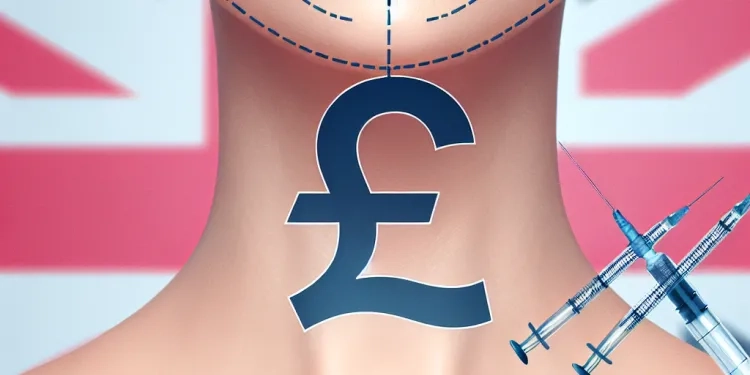
What areas can be treated with Botox?
Relevance: 27%
-

What conditions is Omeprazole used to treat?
Relevance: 27%
-

How is impetigo treated?
Relevance: 26%
-

Can methanol poisoning be treated?
Relevance: 26%
-

Treating prostate cancer
Relevance: 26%
-

How to treat tonsillitis | NHS
Relevance: 26%
-

Can H3N2 be treated with antiviral medications?
Relevance: 25%
-

How is fungal meningitis treated?
Relevance: 25%
-
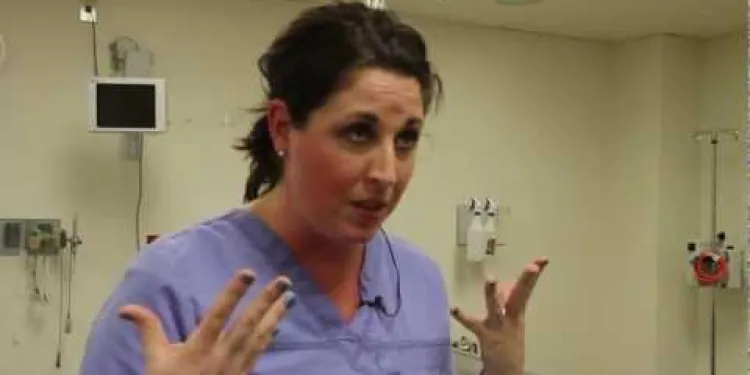
How to treat a scald burn
Relevance: 25%
-

How to treat a sprained ankle
Relevance: 25%
-

How is sunburn treated?
Relevance: 25%
-
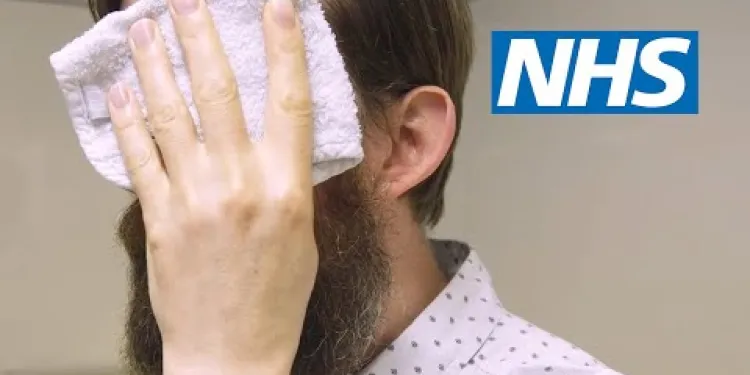
How to treat a stye | NHS
Relevance: 25%
-

How is sickle cell disease treated?
Relevance: 25%
-

What conditions is ketamine used to treat?
Relevance: 25%
-
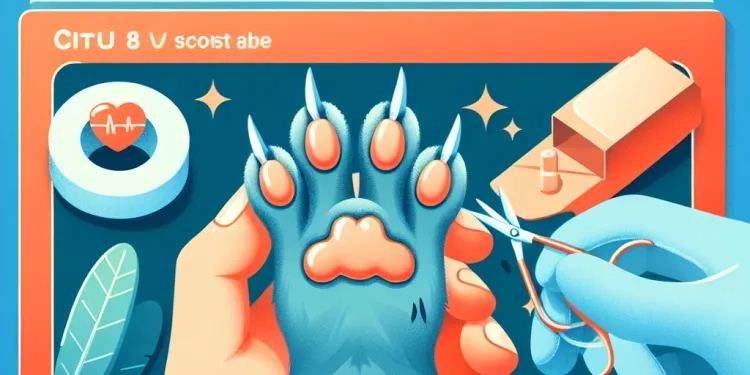
How to treat a cat bite
Relevance: 25%
-

Can E. coli infections be treated?
Relevance: 25%
-

How do chiropractors treat back pain?
Relevance: 24%
-

Is Teplizumab used to treat diabetes?
Relevance: 24%
-

Treating flu (influenza)
Relevance: 24%
-

Treating anxiety and depression - www.slam.nhs.uk
Relevance: 24%
-

How effective are antibiotics in treating Lyme disease?
Relevance: 24%
-

How is thrombosis treated?
Relevance: 24%
-

What antibiotics are used to treat gonorrhoea?
Relevance: 24%
-

Can homeopathy treat all medical conditions?
Relevance: 24%
-

How to treat sinusitis | NHS
Relevance: 24%
-

What are some common conditions treated with homeopathy?
Relevance: 24%
-
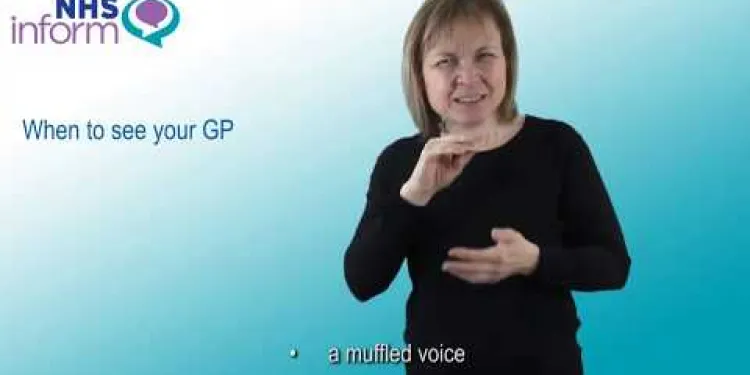
Treating a sore throat
Relevance: 24%
-

How is chronic fatigue syndrome treated?
Relevance: 24%
-

Is it safe to use aspirin to treat chickenpox symptoms?
Relevance: 24%
-

Treating scalp psoriasis
Relevance: 23%
-

How to treat a dog bite
Relevance: 23%
-

Managing and treating your child's eczema
Relevance: 23%
-

How is prostate cancer treated?
Relevance: 23%
How to Treat Earache | NHS
Understanding Earache
Earache, also known as otalgia, is a common condition that can affect people of all ages. It is characterised by pain in or around the ear, which may be sharp, dull, or burning. While earache can be uncomfortable and sometimes distressing, it is usually not a sign of a serious problem and can often be managed at home.
Common Causes of Earache
Earache can be caused by a variety of factors, including:
- Ear infections, such as otitis media or otitis externa
- Excessive earwax buildup
- Throat infections, such as tonsillitis
- Temporomandibular joint (TMJ) disorders
- Dental problems
- Sinusitis
- Injury to the ear
Home Remedies for Earache
For mild earache, especially if it is not accompanied by other severe symptoms, you can try the following home remedies to relieve the pain:
- Pain Relief Medication: Over-the-counter pain relievers such as paracetamol or ibuprofen can help alleviate ear pain. Be sure to follow the recommended dosage instructions.
- Warm Compress: Applying a warm cloth or heating pad to the affected ear can provide comfort and reduce pain.
- Cold Compress: Alternatively, a cold pack can help numb the pain and reduce inflammation.
- Ear Drops: If the earache is due to earwax buildup, ear drops designed to soften earwax may be helpful.
- Stay Hydrated: Drinking plenty of fluids can help thin mucus and relieve pressure in the ear caused by congestion.
- Rest: Adequate rest can support your body's natural healing processes.
When to Seek Medical Advice
While many earaches can be treated at home, it's important to seek medical advice if you experience any of the following symptoms:
- Severe pain that does not improve with pain relief medication
- Fluid or pus discharge from the ear
- Hearing loss or a ringing sensation in the ear
- High fever
- Swelling or redness around the ear
- Persistent pain lasting more than a few days
If you are unsure or concerned about your symptoms, contact your GP or call NHS 111 for further advice.
Preventing Earache
To reduce the risk of earache, consider the following preventive measures:
- Avoid inserting objects into your ears, including cotton swabs
- Keep your ears dry, especially after swimming or bathing
- Manage allergies and infections promptly
- Practice good hygiene, such as washing your hands regularly to prevent infections
- Avoid exposure to loud noises to protect your ear health
By understanding the causes and treatments of earache, you can take appropriate steps to manage the pain and seek medical care when necessary. Always follow the advice of healthcare professionals for the best outcomes.
How to Treat Earache | NHS
Identifying the Cause of Earache
Earache can result from various causes, including infections, earwax buildup, or even referred pain from teeth or throat issues. It is essential to identify the cause to treat the earache effectively. Consult with a healthcare professional if you're unsure about the cause or if symptoms persist.Self-Care Measures
In many cases, mild earaches can be managed at home with some simple self-care techniques. These include:- Applying a warm or cold compress: Place a warm flannel or an ice pack wrapped in a towel against the affected ear to alleviate pain.
- Pain relief: Over-the-counter painkillers like paracetamol or ibuprofen can help reduce pain and inflammation. Always follow the dosage instructions on the packaging.
- Olive oil or ear drops: If the earache is due to earwax buildup, a few drops of warm (not hot) olive oil or over-the-counter ear drops can help soften the wax.
- Stay upright: Keeping your head elevated can help reduce pressure in the ear.
When to See a GP
You should seek medical advice if:- The pain is severe or does not improve with self-care measures.
- You have discharge or bleeding from the ear.
- You experience hearing loss or a persistent feeling of fullness in the ear.
- You have a high temperature, or other symptoms indicating an infection, such as a sore throat or swelling around the ear.
- The earache is recurring or affects your daily life.
Preventing Earache
While not always preventable, you can reduce the risk of earaches by:- Practicing good ear hygiene, avoiding inserting objects into the ear canal.
- Ensuring ears are dry after bathing or swimming to prevent infections.
- Avoiding smoking and secondhand smoke, which can increase the risk of ear infections.
- Managing allergies or colds promptly to avoid complications that affect the ears.
Conclusion
Earaches can be distressing, but with the proper care and attention, they can often be managed effectively. If symptoms persist or you are concerned about your condition, do not hesitate to seek medical advice from your GP or NHS services. Taking proactive steps in ear hygiene and addressing symptoms early can help maintain healthy ears.How to Treat Earache | NHS
Understanding Earache
Earache means your ear hurts. It can happen to anyone. The pain can be sharp, dull, or burning. Earache can be bothersome but is not usually serious. Often, you can feel better at home.
Common Causes of Earache
Earache can happen because of:
- Ear infections like otitis media or otitis externa
- Too much earwax
- Throat infections like tonsillitis
- Jaw joint problems
- Tooth problems
- Sinus infection
- Ear injury
Home Remedies for Earache
If your earache is not too bad, try these at home:
- Pain Relief Medication: Take medicine like paracetamol or ibuprofen. Follow the instructions on how much to take.
- Warm Compress: Put a warm cloth or heating pad on your ear. This can help ease the pain.
- Cold Compress: Use a cold pack to numb the pain and reduce swelling.
- Ear Drops: Use drops to soften earwax if there is too much of it.
- Stay Hydrated: Drink lots of water to help with pressure and congestion.
- Rest: Get plenty of rest to help your body heal.
When to Seek Medical Advice
Sometimes, you need to see a doctor. Go to the doctor if you have:
- Pain that is very bad and does not go away with medicine
- Fluid or pus coming from your ear
- Cannot hear well or have ringing in your ear
- High fever
- Swelling or redness around your ear
- Pain that lasts more than a few days
If you are not sure, talk to your doctor or call NHS 111.
Preventing Earache
To help stop earache from happening, try these tips:
- Do not put objects in your ears, like cotton swabs
- Keep your ears dry after swimming or bathing
- Take care of allergies and infections quickly
- Wash your hands often to keep germs away
- Stay away from loud noises to protect your ears
Knowing what causes and helps earache will let you take care of yourself. Follow what doctors say for the best help.
How to Treat Earache | NHS
What Causes Earache?
Earache can happen for different reasons. It might be because of an infection, too much earwax, or pain from teeth or throat problems. It's important to know why your ear hurts so you can treat it the right way. If you're not sure why your ear hurts, or it doesn't get better, talk to a doctor or nurse.How to Feel Better at Home
Sometimes, you can help your ear feel better using simple things you can do at home. Here are some ideas:- Warm or cold cloth: Put a warm cloth or a cold pack wrapped in a towel on your ear to help with the pain.
- Pain medicine: You can take medicine like paracetamol or ibuprofen to help stop the pain. Remember to use the right amount as written on the box.
- Olive oil or ear drops: If earwax is the problem, you can use a little warm olive oil or special ear drops from the pharmacy to make the wax softer.
- Keep your head up: Sitting up can help stop your ear from hurting more because it reduces pressure.
When to Visit the Doctor
You should go to the doctor if:- The pain is very bad or doesn't get better with things you try at home.
- You have liquid or blood coming from your ear.
- You can't hear well or your ear feels full for a long time.
- You have a high fever or other signs of being sick, like a sore throat or swelling near your ear.
- The earache keeps coming back or stops you from doing what you usually do.
How to Stop Earache from Happening
You can try to stop earaches by doing these things:- Clean your ears carefully and don't put things in them.
- Keep your ears dry after you swim or take a bath to stop infections.
- Stay away from smoking and smoke from others, as it can cause ear infections.
- Take care of colds and allergies quickly so they don't cause ear problems.
Final Thoughts
Earaches can be hard, but you can often make them better with care. If your ear still hurts or you are worried, go see the doctor. Taking care of your ears and starting treatment early can help keep them healthy.Frequently Asked Questions
What should I do if I have an earache?
If you have an earache, you can take over-the-counter painkillers such as paracetamol or ibuprofen. Rest and keep your head elevated to help reduce pressure in your ear.
Can I use ear drops to treat my earache?
Yes, you can use ear drops if recommended by a pharmacist or GP. Be sure to follow the instructions carefully.
Should I see a GP for an earache?
You should see a GP if your earache does not improve within a few days, if you have a high temperature, or if you have discharge coming from your ear.
Is it safe to use olive oil or other home remedies for earache?
Using warm olive oil drops can be safe for earache relief, but it's important to ensure the oil is not too hot. Avoid using any other home remedies without consulting a GP or pharmacist.
What if my child has an earache?
If your child has an earache, give them children's painkillers such as ibuprofen or paracetamol. Keep them hydrated and monitor their symptoms. Consult a GP if their symptoms persist or worsen.
Can earache be a sign of an ear infection?
Yes, an earache can be a sign of an ear infection. Other symptoms might include a high temperature, hearing loss, and discharge from the ear.
What are the symptoms of a serious ear problem?
Serious symptoms include severe pain, high fever, hearing loss, dizziness, swelling around the ear, or discharge from the ear. Seek medical help immediately if these symptoms occur.
How can I prevent earaches?
To prevent earaches, keep your ears dry, avoid inserting objects into your ears, and manage allergies and upper respiratory infections effectively.
Can flying cause earaches?
Yes, changes in air pressure during flights can cause earaches. Sucking on sweets, yawning, or swallowing can help equalize pressure.
Is it normal for earache to cause a headache?
Yes, earache can sometimes cause headaches due to the shared nerve pathways. Over-the-counter pain relief can help with both symptoms.
When is an earache considered an emergency?
An earache is considered an emergency if it's accompanied by severe pain, high fever, swelling, or sudden hearing loss. Seek immediate medical attention in these cases.
Can earwax buildup cause an earache?
Yes, excessive earwax can cause earaches. It may also result in hearing loss or a feeling of fullness in the ear.
Should I use cotton buds to clean my ears if I have an earache?
No, you should avoid using cotton buds as they can push wax further into the ear or injure the ear canal. Use ear drops or consult a GP for safe ear cleaning methods.
Can allergies cause earaches?
Yes, allergies can cause earaches by leading to congestion and inflammation in the Eustachian tube, which connects the middle ear to the back of the nose and throat.
What home care tips can help alleviate earache symptoms?
Home care tips include taking recommended pain relief, applying a warm compress to the affected ear, keeping the head elevated, and staying hydrated. Avoid getting water in the ear.
What are the common symptoms of an earache?
Common symptoms of an earache include pain inside the ear, a feeling of pressure or fullness, temporary hearing loss, and sometimes, fluid drainage from the ear.
When should I see a GP about an earache?
You should see a GP if you have a very high temperature, there's fluid coming from your ear, symptoms persist for more than 3 days, you're experiencing severe pain, or if you have any other concerns.
Can I use over-the-counter painkillers to treat an earache?
Yes, you can use over-the-counter painkillers such as paracetamol or ibuprofen to help relieve pain and reduce any fever.
Is it safe to put olive oil in my ear for an earache?
It is sometimes recommended to use a few drops of warm olive oil or over-the-counter eardrops to soften earwax, but you should consult your GP or pharmacist before doing so.
Are antibiotics necessary for treating an earache?
Antibiotics are not usually needed for earaches as they often get better on their own. They may be prescribed if a bacterial infection is suspected or if symptoms are severe.
Can warm compresses help with earache pain?
Yes, applying a warm cloth or heat pad to the affected ear can help ease pain and discomfort.
What should I do if my child has an earache?
If your child has an earache, give them children's painkillers like paracetamol or ibuprofen, ensure they get plenty of fluids, and keep them comfortable. See a GP if symptoms persist or if you are concerned.
How can I prevent earaches?
To prevent earaches, keep ears dry, avoid inserting objects into the ears, manage allergies, and maintain good respiratory hygiene to prevent colds and infections.
Can earaches be caused by earwax buildup?
Yes, earwax buildup can cause earaches. If you suspect this, consult your GP for advice on earwax removal.
What home remedies can help relieve earache symptoms?
Home remedies include using over-the-counter painkillers, applying a warm compress, and staying hydrated. Avoid inserting anything into the ear.
Is it safe to swim if I have an earache?
It is best to avoid swimming if you have an earache to prevent further irritation or infection.
Can a change in altitude cause earaches?
Yes, changes in altitude, such as during a flight, can cause ear barotrauma, leading to earaches. Chewing gum, swallowing, or using nasal decongestants can help alleviate symptoms.
Can allergies cause earaches?
Allergies can sometimes cause earaches by leading to congestion and inflammation in the ear.
What should I do if there's discharge coming from my ear?
If there's discharge from your ear, it's important to see a GP as it could indicate an infection or other conditions needing treatment.
Can wearing earplugs cause earaches?
Wearing earplugs for extended periods or improperly can irritate the ear canal and potentially cause earaches. Ensure proper hygiene and comfortable fit when using earplugs.
What can I do if my ear hurts?
If your ear hurts, you can take medicine like paracetamol or ibuprofen. These medicines can help with the pain. Rest is important too. Try to keep your head up when you rest. This might help your ear feel better.
Can I use ear drops if my ear hurts?
Yes, you can use ear drops if the doctor or pharmacist says it is okay. Make sure you follow the directions carefully.
Should I go to the doctor if my ear hurts?
If your ear hurts, you might need to see a doctor. Here are some tips to help you decide:
- If your ear hurts a little, try telling an adult. They can help you.
- If your ear hurts a lot or for more than 2 days, see a doctor.
- If you have a fever or feel dizzy, see a doctor.
Helpful things you can do:
- Use a warm cloth on your ear. It might make it feel better.
- Ask an adult to help you put medicine in your ear, if the doctor says it's okay.
If your ear still hurts after a few days, go to the doctor. Go to the doctor if you have a fever or stuff comes out of your ear.
Is it safe to use olive oil or other things at home for ear pain?
Using warm olive oil drops can help with ear pain, but make sure the oil is not too hot. Talk to a doctor or pharmacist before trying other home remedies.
What if my child has an earache?
If your child says their ear hurts, here is what you can do:
- Ask them to tell you where it hurts.
- Give them children's pain medicine if they need it.
- Put a warm cloth on their ear to help it feel better.
- Make sure they drink lots of water.
- If it does not get better, ask a doctor for help.
You can also listen to your child and ask them how they are feeling.
If your child has an earache, you can help them feel better. Give them medicine for pain, like ibuprofen or paracetamol, that is safe for kids. Make sure they drink plenty of water. Watch how they are doing. If they still feel bad or get worse, talk to a doctor. You can also try using a warm cloth on their ear for comfort.
Can an earache mean you have an ear infection?
Yes, a sore ear can mean you have an ear infection. Other signs might be a fever, trouble hearing, or stuff coming out of your ear.
Ask a grown-up to help you or to take you to see a doctor. A doctor can help you get better.
Using headphones to listen to relaxing music can make you feel better. A warm cloth on your ear might help too.
What are the signs of a bad ear problem?
Here are some things to watch out for:
- Ear hurts a lot.
- Hard to hear things.
- Ear feels full or stuffy.
- Buzzing or ringing sound in your ear.
- Liquid coming out of the ear.
- Feeling dizzy or off-balance.
- Having a fever or feeling very hot.
If you have these signs, talk to a doctor. They can help you feel better.
Try using big headphones to block some sounds. Listening to quiet music can help too.
Ask a friend or family member to help you talk with the doctor.
If you have bad pain, a high fever, can't hear well, feel dizzy, your ear is swollen, or stuff comes out of your ear, go to the doctor right away.
How can I stop earaches?
Earaches can hurt. Here are some simple steps to help your ears feel better:
- Keep your ears clean and dry.
- Wear a hat in cold weather to keep your ears warm.
- Don't put things in your ears, like cotton swabs.
- Try not to get water in your ears when you swim. You can wear earplugs.
- If you have a cold, blow your nose gently.
- See a doctor if your ear hurts a lot.
Adults can help by reading with you or showing you how to do these steps. Use pictures or videos to learn more.
To stop ear pain:
- Keep your ears dry.
- Do not put things in your ears.
- Take care of allergies and colds quickly.
Tools that can help:
- Use earplugs when swimming.
- Try over-the-counter allergy medicine.
Can flying make your ears hurt?
When you fly in an airplane, it can sometimes make your ears feel funny or hurt. This happens because of the changes in air pressure. Here are some ways to help your ears:
- Yawn or swallow when you feel your ears popping.
- Chew gum or suck on candy to help your ears adjust.
- Try using earplugs made for flying.
If your ears hurt a lot or you feel worried, talk to a grown-up or a doctor.
Yes, flying on a plane can make your ears hurt because of the air pressure. You can suck on sweets, yawn, or swallow to help your ears feel better.
Can an earache give you a headache?
Yes, sometimes ear pain can make your head hurt too.
If this happens, it might help to:
- Rest in a quiet place.
- Use a warm cloth on your ear.
- Drink water.
- Tell a grown-up or a doctor.
Yes, an earache can sometimes make your head hurt too. This happens because your ear and head use the same nerves. You can take medicine from the store to help with both the ear pain and head pain.
When is an earache an emergency?
An earache is a pain in your ear. Sometimes, it can be very bad.
Here is when it is an emergency:
- If the earache is very, very painful.
- If you have a high fever (very hot body).
- If you feel very dizzy or lose your balance.
- If you cannot hear well or at all.
- If you see blood or pus coming out of your ear.
What to do:
If any of these things happen, tell a grown-up right away. Go to the doctor or call for help.
Tools and tips:
- Use a warm cloth on the ear to help with pain.
- Rest in a quiet and comfy place.
- Ask for help if you feel scared or worried.
If your ear really hurts, or if you have a high fever, your ear is swollen, or you suddenly can't hear well, it's an emergency. You should see a doctor right away.
Can too much earwax make your ear hurt?
Yes, too much earwax can make your ear hurt. It can also make it hard to hear or make your ear feel full.
Can I use cotton buds to clean my ears if they hurt?
If your ears hurt, it is not safe to use cotton buds. Cotton buds can push wax deeper into your ear and make it hurt more.
Here are some things you can do instead:
- Tell a grown-up or someone who can help.
- You can visit a doctor. They know how to safely check your ears.
- If it is an emergency, go to a hospital.
Remember, keeping your ears safe and clean is important!
No, don't use cotton buds in your ears. They can push wax deeper in or hurt your ear.
Try ear drops instead. You can also ask a doctor for help with cleaning your ears safely.
Do allergies make your ears hurt?
Yes, allergies can make your ears hurt. This happens because they can block and swell the tube that goes from your ear to your throat and nose.
How can I help ear pain feel better at home?
When you take care of your ear at home, you can do a few things to feel better:
- Take medicine if your doctor says it's okay.
- Put something warm on your ear, like a cloth, to help with the pain.
- Keep your head up when you sit or lie down.
- Drink lots of water or juice.
- Don't let water get in your ear.
If you need help, you can use a timer to remind you when to take medicine or drink water.
What are the common signs of an earache?
What is an earache? It is when your ear hurts.
These are signs that your ear might hurt:
- Your ear feels sore or painful.
- You have trouble hearing.
- Your ear feels full or blocked.
- You hear ringing sounds.
- You feel dizzy.
If your ear hurts, you can:
- Tell an adult you trust.
- Use warm cloths on your ear.
- Rest in a quiet room.
If it still hurts, it is good to see a doctor.
If your ear hurts, it might feel like:
- Pain inside your ear
- Ear feels full or like something's pressing on it
- Hard to hear things clearly
- Sometimes, stuff might come out of your ear
If you're having trouble, you could try:
- Talking to someone you trust
- Using pictures or videos to help you understand
- Getting help from someone who knows about ears, like a doctor.
When should I see a doctor for an earache?
If you have an earache, it might hurt a lot. Here is when you should see a doctor:
- If your earache does not go away after two days.
- If there is liquid coming from your ear.
- If you have a high fever.
- If it is hard to hear.
- If the earache really hurts.
If you are worried, it is always good to talk to a doctor. They can help you feel better.
It can help to use a warm cloth on your ear. But if it still hurts, make sure to see a doctor.
You should see a doctor if:
- You have a very high temperature.
- There is fluid coming from your ear.
- Your symptoms last more than 3 days.
- You have severe pain.
- You are worried about something else.
Here are some tips to help you:
- Write down how you feel. This helps you remember when you talk to the doctor.
- Ask someone to go with you to the doctor if you need help.
- Use pictures or drawings to show what hurts.
- Tell the doctor if you want them to explain things more simply.
Can I use medicine from the store for an earache?
If your ear hurts, you might wonder if you can use pain medicine from the store. These medicines are called over-the-counter painkillers. They are like special pills that help stop pain.
Before you take the medicine, it is a good idea to:
- Ask a grown-up: Talk to a parent or guardian. They can help you decide what to do.
- Talk to a doctor or nurse: They can tell you if it is safe to use the medicine for your ear.
- Read the label: The medicine box has special instructions. The label tells you how much to take.
- Use a timer: Set a timer to remember when to take the medicine again.
Remember, it is important to be safe and ask for help if you are ever unsure.
Yes, you can use medicine you buy without a prescription. These are called painkillers. You can use paracetamol or ibuprofen to help with pain and make a fever go down.
Can I use olive oil in my ear if it hurts?
When your ear hurts, you can try putting a little warm olive oil in it. This may help the pain. Make sure the oil is not hot. If you put it on your skin and it feels nice, it is okay to use. If the pain does not go away or gets worse, tell an adult or see a doctor.
Use a spoon or a dropper to put the olive oil in your ear. Ask someone to help you if you need. Only put a few drops in your ear.
Have a towel or tissue to wipe any oil that comes out.
Remember: it's always good to ask an adult for help or see a doctor if you're not sure.
Sometimes, people say to use a few drops of warm olive oil or special eardrops from the store to make earwax softer. But you should talk to your doctor or a pharmacist first.
Do you need medicine for an earache?
When your ear hurts, you might wonder if you need medicine. This medicine is called antibiotics. Sometimes, you do not need it to get better.
You can try other things to help. Like:
- Putting a warm cloth on your ear
- Resting and taking it easy
- Drinking lots of water
It is always good to ask a doctor. They can tell you if you need special medicine or not.
Most of the time, you don't need medicine called antibiotics for an earache. Earaches usually get better by themselves. Doctors might give you antibiotics if they think germs are causing an infection or if you feel really sick.
Can warm cloths help with ear pain?
If you have ear pain, holding a warm cloth to your ear might help. This is called a warm compress.
You can use a soft cloth, like a washcloth. Warm it up with warm (not hot) water, and then hold it against your ear.
Be careful, it should not be too hot, so you don’t get burned.
A warm cloth can feel nice and may help with the pain.
If your ear still hurts a lot, tell an adult or see a doctor for more help.
Yes, you can use a warm cloth or a heat pad on your ear. It can help make the pain feel better.
What can I do if my child's ear hurts?
If your child has an earache, here's what you can do:
- Give them medicine for children like paracetamol or ibuprofen to help with the pain.
- Make sure they drink lots of water or other fluids.
- Help them feel comfortable and cozy.
- If the earache doesn't go away or you are worried, go to the doctor.
You can use picture cards or a gentle talking voice to help explain what is happening to your child.
How can I stop ear pain?
To stop ear pain:
- Keep your ears dry.
- Don't put things in your ears.
- Take care of allergies.
- Cover your mouth and nose when you sneeze. This helps stop colds and infections.
Can earaches happen because of too much earwax?
Sometimes, earwax can build up inside your ear. This can cause an earache. Earwax is yellow stuff that your ear makes. It helps keep your ears clean and safe.
If you have an earache, ask an adult to help you. A doctor can look in your ear to see if earwax is the problem. The doctor can help get rid of extra earwax if needed.
It's important not to put things in your ear yourself.
For help understanding, you can try:
- Talking to a friend or family member.
- Using pictures to show what’s happening in the ear.
Yes, too much earwax can make your ears hurt. If you think this is the problem, talk to your doctor. They can help you get the earwax out safely.
What can you do at home to help earache feel better?
Here are some things you can try at home:
- You can take medicine from the pharmacy to help with pain.
- Put something warm, like a warm cloth, against your ear.
- Drink lots of water.
- Don't put anything in your ear.
You can ask a grown-up for help if you need it. Using a timer or a reminder app can help you remember to do these things.
Can I swim if my ear hurts?
If your ear is hurting, it is best not to swim. Swimming can make the ear pain worse.
If your ear keeps hurting, you should tell an adult. They can take you to a doctor.
A doctor can help your ear feel better.
If your ear hurts, it is better not to go swimming. This will help stop your ear from getting worse or getting an infection.
Can going up or down make your ears hurt?
When you move up or down, like in a plane or on a hill, it can make your ears hurt.
If your ears hurt, try swallowing, yawning, or chewing gum to help.
Yes, when you go up or down, like on a plane, your ears can hurt. This is called ear barotrauma. Chewing gum, swallowing, or using nose sprays can help make it better.
Do allergies make your ears hurt?
Yes, allergies can make your ears hurt. This is called an earache.
When you have allergies, your body reacts to things like pollen or dust.
This can cause your ears to feel blocked or hurt.
If this happens, you can try:
- Telling an adult or a doctor.
- Using special medicines for allergies.
- Staying away from things that cause your allergies.
These ideas can help your ears feel better.
Allergies can sometimes make your ears hurt. This happens because allergies can block and swell the insides of your ears.
What to do if stuff comes out of my ear?
If stuff (like liquid or goo) comes out of your ear, don't worry! Here are some easy steps to follow: 1. **Tell a grown-up**: Ask an adult to help you. 2. **Stay calm**: It's important to stay calm and not touch your ear too much. 3. **Visit a doctor**: A doctor can look at your ear and help you feel better. If it's hard to hear, ask someone to speak slowly and clearly. You can also use pictures or drawings to share what you're feeling.If stuff is coming out of your ear, you should see a doctor. It might mean you have an infection or something else that needs help.
You can ask someone to go with you to the doctor. Writing down your questions before you go can help too.
Do earplugs make your ears hurt?
Wearing earplugs for a long time or the wrong way can hurt your ears. This might make your ears ache. Keep your earplugs clean and make sure they fit well in your ears.
Useful Links
- Ergsy carfully checks the information in the videos we provide here.
- Videos shown by Youtube after a video has completed, have NOT been reviewed by ERGSY.
- To view, click the arrow in centre of video.
- Most of the videos you find here will have subtitles and/or closed captions available.
- You may need to turn these on, and choose your preferred language.
- Go to the video you'd like to watch.
- If closed captions (CC) are available, settings will be visible on the bottom right of the video player.
- To turn on Captions, click settings .
- To turn off Captions, click settings again.
More Items From Ergsy search
-

How to treat earache | NHS
Relevance: 100%
-

Self care: Treating ear infections
Relevance: 30%
-

Can HPV be treated?
Relevance: 29%
-

Can appendicitis be treated with antibiotics?
Relevance: 28%
-

Do chiropractors only treat the spine?
Relevance: 28%
-

Can Lyme disease be treated?
Relevance: 27%
-

Can antibiotics treat norovirus?
Relevance: 27%
-

What areas can be treated with Botox?
Relevance: 27%
-

What conditions is Omeprazole used to treat?
Relevance: 27%
-

How is impetigo treated?
Relevance: 26%
-

Can methanol poisoning be treated?
Relevance: 26%
-

Treating prostate cancer
Relevance: 26%
-

How to treat tonsillitis | NHS
Relevance: 26%
-

Can H3N2 be treated with antiviral medications?
Relevance: 25%
-

How is fungal meningitis treated?
Relevance: 25%
-

How to treat a scald burn
Relevance: 25%
-

How to treat a sprained ankle
Relevance: 25%
-

How is sunburn treated?
Relevance: 25%
-

How to treat a stye | NHS
Relevance: 25%
-

How is sickle cell disease treated?
Relevance: 25%
-

What conditions is ketamine used to treat?
Relevance: 25%
-

How to treat a cat bite
Relevance: 25%
-

Can E. coli infections be treated?
Relevance: 25%
-

How do chiropractors treat back pain?
Relevance: 24%
-

Is Teplizumab used to treat diabetes?
Relevance: 24%
-

Treating flu (influenza)
Relevance: 24%
-

Treating anxiety and depression - www.slam.nhs.uk
Relevance: 24%
-

How effective are antibiotics in treating Lyme disease?
Relevance: 24%
-

How is thrombosis treated?
Relevance: 24%
-

What antibiotics are used to treat gonorrhoea?
Relevance: 24%
-

Can homeopathy treat all medical conditions?
Relevance: 24%
-

How to treat sinusitis | NHS
Relevance: 24%
-

What are some common conditions treated with homeopathy?
Relevance: 24%
-

Treating a sore throat
Relevance: 24%
-

How is chronic fatigue syndrome treated?
Relevance: 24%
-

Is it safe to use aspirin to treat chickenpox symptoms?
Relevance: 24%
-

Treating scalp psoriasis
Relevance: 23%
-

How to treat a dog bite
Relevance: 23%
-

Managing and treating your child's eczema
Relevance: 23%
-

How is prostate cancer treated?
Relevance: 23%


